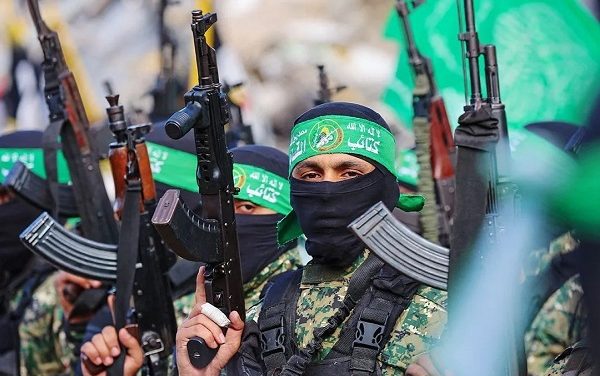One of the important, strategic, and unprecedented consequences of the Gaza war, which, for the first time in the last 75 years, has put the Zionist regime in a difficult situation, is the growing process of “isolation” of this regime in the domestic public opinion and among its partners and allies.
Unlike the time before the Operation Al-Aqsa Storm, supporting the Zionist regime has practically become a “costly and consequential” issue for Western governments. Today, the progressives of the Democratic Party, youth organizations, and American Arabs openly criticize Biden’s support for Tel Aviv and strongly condemn it.
The voices of critics and opponents of the war increased in European capitals, and Europeans are “against” any financial, economic, and military support for Tel Aviv in the Gaza war.
In addition, a large number of Western officials also want an end to the war and support for the Zionist regime in Gaza.
In this regard, more than 800 current and former officials from the United States, England, and EU member states published an open letter on February 2, declaring their opposition to their government’s support for the Zionist regime’s military operations in the Gaza Strip. Among them, there were about 80 officials from the US institutions, especially from the State Department. It is the “first time” that the government officials of Europe and America publicly criticized the Zionist regime on such a vast scale.
Even in reliable international polls in America and Europe, the Zionist regime does not have a good standing. According to an important survey conducted by Morning Consult Polls, which specializes in collecting data from 43 countries worldwide, support for the Zionist regime has significantly decreased in six continents.
According to the mentioned survey, China, South Africa, Brazil, and many other countries in Latin America have changed their perspective towards the Zionist regime from a positive to a negative one. This is despite the fact that many rich countries, including Japan, South Korea, and England, which previously had a negative view of the Zionist regime, now have a more negative view of this regime.
The results of polls conducted in America and Europe in recent months, the details of which have been published in the media, indicate that
for the first time in more than seven decades, there have been substantial differences of opinion on the support of the Zionist regime in Western societies at three levels: public opinion, structural, and agency.
What was said so far shows that as a result of the Gaza war, the spread of “anti-Zionist sentiments” in the world, especially in Western countries, which has appeared in various forms while intensifying the process of isolation of the Zionist regime in the world, has created a “big and irreparable hole” in the structure of legal and political legitimacy of Israel. And the support mechanisms of Western governments for the regime.
The nature of the trial of the Zionist regime at the International Court of Justice at the Hague, in which representatives from 52 countries were present, and most of them were staunch critics and opponents of the Zionist regime, is also considered one of the “unprecedented consequences” of Tel Aviv’s growing isolation in the world.
The isolation of the Zionist regime also gradually closes the hands of this regime in the advancement of many anti-Palestinian and regional policies, some of which require the “exploitation” of international mechanisms and global legal and political assemblies.
In addition, the growing isolation of the Zionist regime in the world not only “nullifies” the realization of the “New Middle East” scheme, which is a joint American-Israeli project, but also opens the hand of the Islamic Resistance Front in the region to fight against this regime.
Disruption in the process of normalizing relations between certain Arab states and the Zionist regime and creating severe obstacles in the path of occupation, settlement, and annexation are other significant consequences in this field.
Moreover, the isolation of the Zionist regime in the world will overshadow the process of economic, political, etc., interactions of this regime with foreign countries due to the pressure of public opinion. Furthermore, mention must be made of “the return of the Palestinian issue to the top of regional and global news,” which is in the process of realization concurrent with the isolation of Tel Aviv in the world. In other words, over the past 75 years, Palestine has never been in the spotlight as it is today, and the main reason is the Operation Al-Aqsa Storm and the Gaza war, which has caused the public opinion of the world to learn more about the “vulnerable and criminal” nature of the Zionist regime.
In the end, it should be said that even though the Zionist regime and Benjamin Netanyahu himself have entered a period of intense and unprecedented isolation and the massive wave of global pressure has severely isolated the Zionist regime and the Israeli Prime Minister, what has kept this regime still stand on its feet is not the field and military capabilities but basically the continuation of the comprehensive “support” of the United States. The Zionist regime still enjoys the support of its staunchest ally, the United States, thanks to the Jewish lobby and the White House’s need to keep the Jewish and Zionist project alive at the heart of the region and the Muslim world.










0 Comments